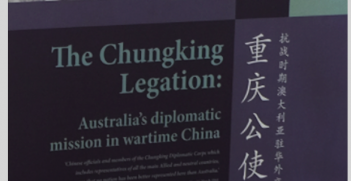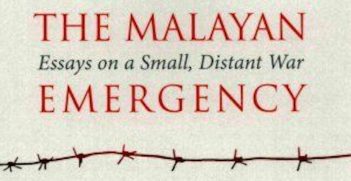A History of Modern Indonesia

Indonesia is an immensely diverse and complex place. Its myriad islands span thousands of kilometres, lying at the confluence of the Indian and Pacific Oceans. The archipelago has seen wave after wave of immigration across the centuries, from early island-hopping settlers to traders from India, China and the Middle East through to the colonial era when European powers struggled for predominance and control over its resources. Adrian Vickers begins his account of modern Indonesia with the arrival of the Dutch and their transition from a trading entity to colonial rulers of the islands. Readers journey through the decline of Dutch rule, the arrival of the Japanese and subsequently to the birth of the modern Indonesian state as we know it today. Vickers masterfully weaves the disparate threads of Indonesia’s story together into a cohesive, colourful and engaging history.
Vickers’s book mostly revolves around the story of Pramoedya Ananta Toer, widely recognised as one of the great Indonesian writers. Pramoedya’s writings, political and philosophical thought, and experiences are entwined with the broader picture of Indonesian history throughout the book. Pramoedya bore witness to the arrival of the Japanese and the declaration of Indonesia’s independence as a young man; he was imprisoned by the Dutch and later by the Suharto regime. Much of his writing was completed from behind bars including his acclaimed Buru Quartet set at the end of the Dutch colonial period. Vickers colours his account with the literary work, commentary and anecdotes of the legendary writer and his contemporaries to provide a more personalised understanding of the country.
A History of Modern Indonesia is unique in its ability to capture a national history through the lives and actions of leaders and historical figures while at the same time presenting the views and feelings of the everyday residents of the archipelago living through these macro-level shifts. It is not just great and powerful men driving the historical narrative. A quote from Pramoedya himself , seems to align neatly with Vickers’ approach to his writing:
“The view that history is the story of the lives of those who want to grasp the power of the throne means that in our cultural life we know nothing but power. We have not known humanity as the driving concept in life and in our traditional art and culture. Forgive me if I am mistaken.”
Vickers aptly links present to past and past to present, highlighting patterns and noting the impact of historical occurrences on the modern Indonesian state. This different take on Indonesia’s history is refreshing. The book jumps seamlessly from one place to another, one person to the next, guiding the reader through observer accounts, anecdotes and historical fact. We are treated to insights into Indonesian culture and the intersecting streams of ideology and philosophy present in the community. Politics is always present but not always central.
The updated second edition adds discussion of recent political developments in Indonesia. Vickers notes the increasing visibility and traditional leanings of Islam in Indonesia, explores the threat of terrorism in the 2000s and considers prospects for the future as Indonesia’s fledgling democracy continues to develop.
All of this makes A History of Modern Indonesia a pleasure to read. Vickers avoids the trap of musty history; it does not get lost in minutiae nor fall into a monotonous drone. At times it reads more like a novel in style but it is certainly a serious piece of academic work. It is a great achievement to deliver an academically rigorous history that is so accessible, engaging and expressive in its prose. Vickers shows deep understanding of the subject matter and exhibits a literary style that could only be inspired by Pramoedya himself.
A History of Modern Indonesia should be the first stop for anyone looking to gain a greater understanding of Indonesia, from the layperson to the seasoned academic. Adrian Vickers must be commended on this valuable contribution to the field and for offering a readable, insightful history for a general audience of one of Australia’s closest neighbours. The book serves as essential reading for students of Indonesia and has the potential to be updated as time goes on.
Adrian Vickers. 2013. A History of Modern Indonesia (2nd Edition). Cambridge University Press.
Sebastian McLellan has a Masters of International Relations from The University of Melbourne and a Bachelor of Arts (Honours) in Linguistics from Monash University. Sebastian was a research assistant at the AIIA National Office in 2015. This review is published under a Creative Commons Licence and may be republished with attribution.





